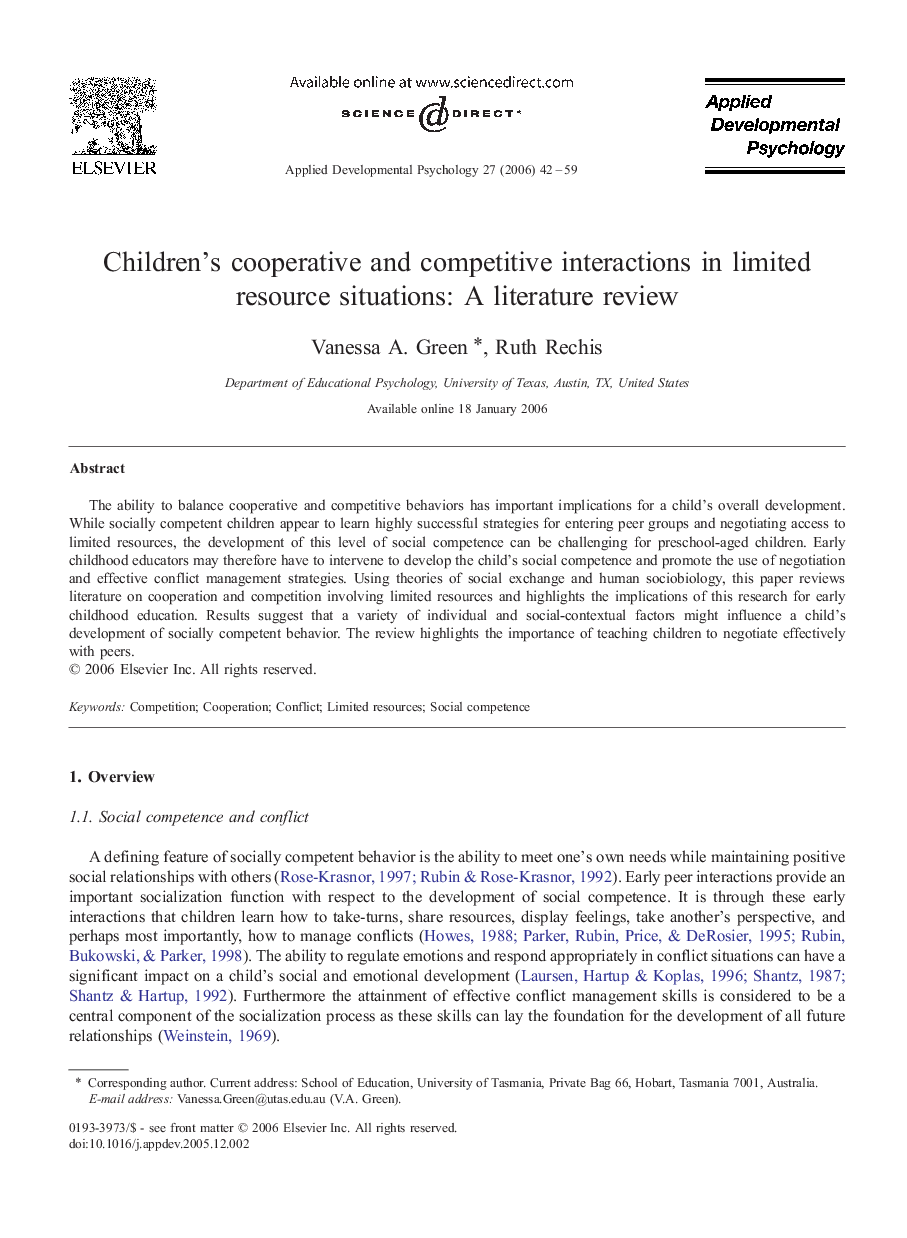| Article ID | Journal | Published Year | Pages | File Type |
|---|---|---|---|---|
| 359981 | Journal of Applied Developmental Psychology | 2006 | 18 Pages |
The ability to balance cooperative and competitive behaviors has important implications for a child's overall development. While socially competent children appear to learn highly successful strategies for entering peer groups and negotiating access to limited resources, the development of this level of social competence can be challenging for preschool-aged children. Early childhood educators may therefore have to intervene to develop the child's social competence and promote the use of negotiation and effective conflict management strategies. Using theories of social exchange and human sociobiology, this paper reviews literature on cooperation and competition involving limited resources and highlights the implications of this research for early childhood education. Results suggest that a variety of individual and social-contextual factors might influence a child's development of socially competent behavior. The review highlights the importance of teaching children to negotiate effectively with peers.
